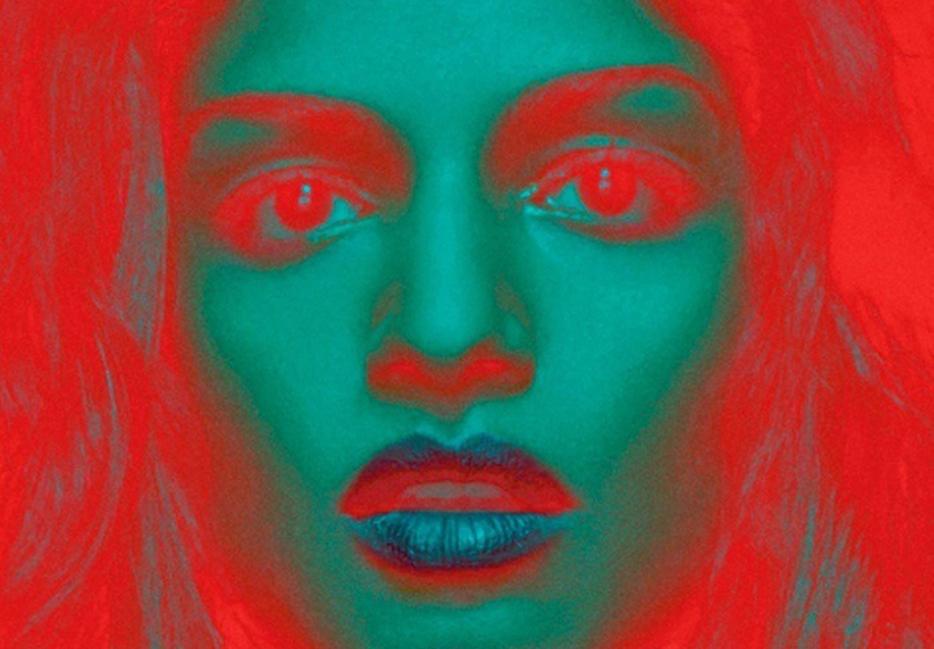On the title track from her fourth album Matangi, M.I.A. shouts out entire continents of countries, like an internationalist “Brooklyn’s Finest”: “Somalia, Bosnia, Cuba Colombia, Ecuador, Mexico, Bhutan Morocco, Botswana, Ghana, India, Serbia, Libya Lebanon, Gambia, Namibia, Bali Mali Chile Malawi…” Some of these are regions where she’s lived, recorded in or borrowed iconography from, but it can also be read as a diasporic roll call, places of flight and refuge. (You don’t need to cross the NSA to enter a stateless state; the U.S. government denied Maya Arulpragasam a visa to make Kala because of family ties to the Tamil Tigers.) The later diss of Drake, recently photographed next to Toronto’s own Ubu Roi, almost seems extraneous. She’s already implicitly rebuked his reflexive parochialism.
This LP came together fitfully (the languorous banger “Bad Girls” is almost two years old now), a struggle I can only ascribe to the hostility that greeted her previous one. After the outsized success of “Paper Planes,” ensnaring Arulpragasam in some purported hypocrisy became a journalistic fixation: “The album comes not long after a New York Times Magazine cover story that portrayed her as a pretentious, truffle fries-eating phony spouting radical politics at odds with her extremely comfortable lifestyle,” as Pitchfork’s scolding, uncomprehending Maya review described it. How many critics claimed Vampire Weekend lyrics about the emotional conflicts of being white and rich were on some Alan Hollinghurst shit before calling M.I.A. an ideological fake because she likes partying? Is their only notion of post-colonial politics the saintly Gandhi figure, untroubled by ambivalence or material pleasure? To return to that emblematically misjudged Pitchfork pan: “It’s as if everything that was great about M.I.A. has been stripped from this music, leaving behind only the most alienating aspects of her art and public persona.” Maybe you were meant to feel alienated.
Maya, and Maya, didn’t just roil listeners with their snacking choices; the stark, abrasive beats, which often sounded like they were streaming through a bad Internet connection, anticipated several years of dance music. Courting and then goading mass audiences is a routine danced many times, but artists doubling back, whether Lou Reed or Kanye, don’t get so mythologized. Pop moves can be a provocation as much as obscurantist ones. Although the sonics on Matangi resemble Maya’s in their cacophony, it’s the noise of abandon rather than paranoia. Incidental samples, chthonic sub-bass and combative drumlines clatter against each other in the club while M.I.A. makes goofy boasts, like a 2 Chainz given to leftist rhetoric: “If you’re gonna be me you need a manifesto / If you ain’t got one you better get one presto.” She and frequent producer Switch recorded their most multi-layered tracks yet, switching tempos at bruising pace. A sing-song chant might burst instantly and percussively in all directions. Matangi has the sense of a summation.
The name on Arulpragasam’s passports is Mathangi, after a Hindu goddess of music, and religious signifiers, verbal or aural, suffuse this album, in appropriately syncretic style. Buddhist, Hindu, Islamic, blasphemously Judeo-Christian, it’s found spirituality, reflecting her specific experience; as Ayesha Siddiqi wrote, “she doesn’t just traffic in Otherness, she revels in it.” And despite her rep as a cultural magpie artlessly slapping symbols together, the collage is deliberate. (She co-wrote every song from Matangi.) “Y.A.L.A.” uses reincarnation to ironize Drake’s YOLO mantra, imagining a cosmology of continuous revolution: “If you only live once, why we keep doing the same shit? Back home where I come from, we keep being born again and again and again and again. That’s why they invented karma.” Clowning on Westerners who colonize both ritual (Eat, Pray, Love) and trauma (Kony 2012), “Boom Skit” could be repurposed Youtube comments: “Brown girl, brown girl, turn your shit down / You know our America don’t want to hear your sound / Boom boom jungle music, go back to India.”
At her recent New York concert, M.I.A. was preceded by Julian Assange, an opening act that seemed calculated to troll the audience not with his vague anti-American patina or sexual-assault rap sheet but the simple act of letting anybody lecture for 10 minutes in such a context. (Myself, I’m more of a Chelsea Manning fan.) I admire that sheer confrontational panache, even if I admire her music in turn for its refusal to lecture, for realizing that the most effectively political pop singles might be the least “coherent” ones, all clever contradictory slogans, praxis not theory. You can’t spit C. L. R. James or Gayatri Spivak over a beat. She doesn’t really attempt complex vocal melodies over any beats either, but in “Come Walk With Me,” M.I.A. drawls a ballad for the age of airborne drones and state voyeurs, of omnipresent screens and the aging male novelists who abhor them. Facing the inescapable metadata that is romance circa 2013, her nasal, unemotive tones ring tentatively plaintive, a kind of blasé sincerity: “There’s a thousand ways to meet you now, there’s a thousand ways to track you down … It’s cool, it takes two / So I’m still gonna fux with you.”





